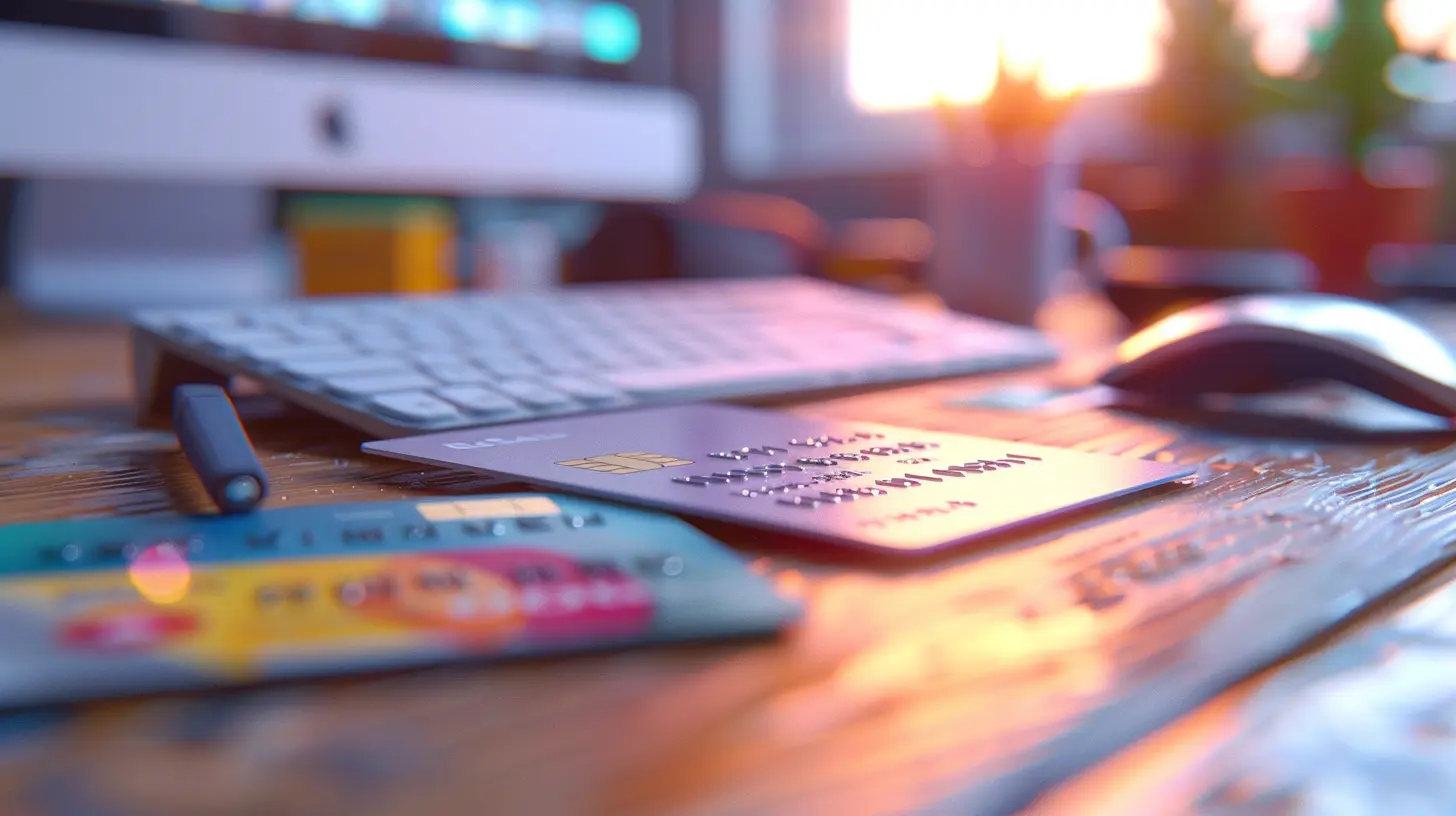10 April 2025
Your credit score plays a crucial role in your financial well-being. It determines your ability to get loans, qualify for credit cards, and even influences things like renting an apartment or securing a lower insurance rate. So, when you notice a sudden drop in your credit score, it can be downright terrifying.
Don't panic just yet. Understanding why your score dropped and how to fix it can help you minimize the damage and get back on track. In this guide, we’ll break down the possible reasons behind a sudden credit score drop and the steps you can take to recover.

Why Did Your Credit Score Drop?
Before you can fix the issue, you need to figure out what caused it in the first place. Here are some common reasons why your credit score might have taken a hit:1. Missed or Late Payments
Late payments are one of the most common and damaging factors affecting your credit score. Even missing a single payment can cause a considerable drop. Payment history accounts for 35% of your credit score, so lenders take it very seriously.How to Fix It:
- If you recently missed a payment, pay it as soon as possible.- Contact your lender and ask if they can waive the late fee or avoid reporting it to the credit bureaus.
- Set up automatic payments or reminders to ensure you never miss a due date again.
2. Increased Credit Utilization
Credit utilization—how much of your available credit you're using—makes up 30% of your credit score. If your credit card balance suddenly spikes, even if you pay on time, your score could take a hit.How to Fix It:
- Pay down as much of your credit card balance as possible.- Keep your credit utilization below 30%, and ideally, under 10%.
- Consider requesting a credit limit increase (but don’t rack up more debt).
3. Closed a Credit Card Account
Did you recently close a credit card? That could be a reason your score dropped. Closing a card reduces your total available credit, increasing your utilization ratio. It also shortens your credit history, which impacts your score.How to Fix It:
- If the card isn’t costing you high fees, consider keeping it open.- If you've already closed it, try reducing balances on other credit accounts to improve your credit utilization ratio.
4. Errors or Fraud on Your Credit Report
Sometimes, mistakes happen. A lender may report incorrect data, or worse, you may have fallen victim to identity theft. Fraudulent accounts or incorrect late payments can significantly hurt your credit score.How to Fix It:
- Pull your free credit report from AnnualCreditReport.com and review it carefully.- If you spot errors, dispute them immediately with the credit bureaus (Experian, Equifax, and TransUnion).
- Place a fraud alert or credit freeze if you suspect identity theft.
5. Hard Inquiries from Loan or Credit Applications
Applying for a new credit card or loan results in a hard inquiry on your credit report, which can lower your score slightly. Multiple inquiries in a short period can raise red flags for lenders, making you seem desperate for credit.How to Fix It:
- Avoid applying for multiple credit cards or loans at once.- If you’re rate-shopping for an auto loan or mortgage, do it within 14 to 45 days—most scoring models will count multiple inquiries in this window as one.
6. An Old Debt Has Resurfaced
Collections accounts and old debts can return to haunt you, especially if a debt is sold to a new collector. If an old account suddenly reappears on your credit report, it could impact your score.How to Fix It:
- Contact the collection agency to verify the debt.- If the debt is valid, negotiate a pay-for-delete agreement to have it removed after payment.
- If it's an error or past the statute of limitations, dispute it with the credit bureaus.

How to Recover from a Credit Score Drop
Now that you understand what may have caused your credit score dip, let’s talk about how to rebuild it.1. Pay All Bills on Time
On-time payments are the biggest factor in determining your credit score. If you missed a payment, start fresh and make sure every bill is paid on or before the due date from now on.2. Reduce Your Debt
Lowering your credit utilization is one of the fastest ways to boost your score. Pay off as much debt as you can, focusing on high-interest credit card balances first.3. Avoid Closing Old Accounts
Even if you no longer use a credit card, keeping it open can help maintain your total available credit and the length of your credit history.4. Limit New Credit Applications
Every time you apply for a new credit card or loan, it triggers a hard inquiry. If you're actively rebuilding your score, avoid unnecessary applications.5. Regularly Monitor Your Credit Report
Check your credit report at least once a year for errors, fraudulent activity, or negative changes. The sooner you catch problems, the easier they are to fix.6. Become an Authorized User
If a family member or trusted friend has a credit card with a long, positive history, ask to be added as an authorized user. Their good credit behavior can give your score a boost.7. Use a Credit-Builder Loan or Secured Credit Card
If your score has taken a major hit, consider a credit-builder loan or a secured credit card. These financial tools help you rebuild credit responsibly.
How Long Will It Take to Recover Your Credit Score?
The answer depends on why your score dropped. Some factors—like high credit utilization—can be corrected within a couple of months. Others, like missed payments or collections, may take six months to a year or more to fully recover.Here’s a rough timeline for recovering from different types of credit setbacks:
| Credit Issue | Approximate Recovery Time |
|-------------|--------------------------|
| High credit utilization | 1-3 months |
| Hard inquiries | 6-12 months |
| Late payments | 6 months - 2 years |
| Collections or charge-offs | 7 years (unless removed) |
| Bankruptcy | 7-10 years (but credit improvement starts within 2-3 years) |
The key is consistency. Keep making smart financial decisions, and your credit score will bounce back over time.

Final Thoughts
A sudden drop in your credit score isn't the end of the world. Yes, it’s frustrating and nerve-wracking, but once you identify the cause, you can take the right steps to fix it. Whether it's missed payments, increased credit utilization, or errors in your credit report, there’s always a way to recover.Remember, credit scores fluctuate over time. What matters most is how you manage your credit in the long run. Stay consistent, monitor your score regularly, and keep your debt in check—and before you know it, your credit score will be back where it belongs.





Allegra Anderson
Don't panic! A sudden credit score drop isn't the end of the world. Take charge—check your credit report for errors, pay down debt, and keep your credit utilization low. Own your financial journey and remember: rebuilding your score is a marathon, not a sprint. Act decisively!
April 17, 2025 at 7:05 PM